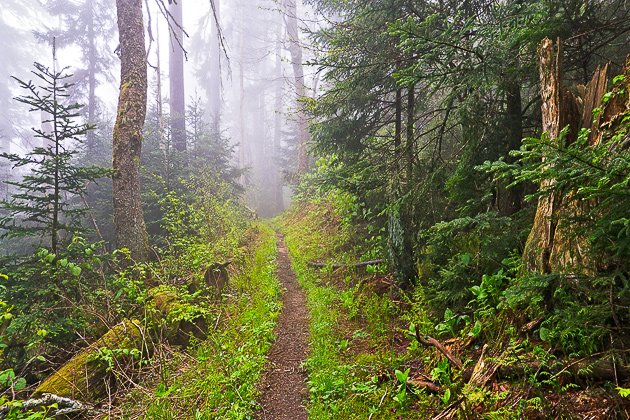Student Spotlight | UPJ freshman to hike Appalachian Trail for wildlife fundraiser
March 29, 2022
Pitt-Johnstown freshman Anastasia Smith is getting ready to embark on an adventure along the risky Appalachian Trail as a partial tribute to the passing of her friend, UPJ student Samuel Benshoff.
“Life’s too short,” says Smith, as the news of Benshoff’s passing hit her, as well as many of her friends hard.
She takes this as an added motivation for her trip. She plans to make this hike to raise awareness about wildlife protection. Smith is trying to raise $15,000 for Defenders of Wildlife, a non-profit organization based in Washington, D.C., founded in 1947.
She is aiming to complete her journey in about 75 days. If that becomes impossible for her, then she will try to complete the trip in under 100 days. The average duration to hike the trail is from about five to seven months, but the shortest amount of time it has taken anyone to hike the trail is 41 days.
Smith, growing up near Ohiopyle, Pa., has taken numerous day hikes with her childhood friends.
“I basically grew up in the woods,” she says about her outdoor experience. However, she admits to having never been on such a long hike as walking the Appalachian Trail. The trail is almost 2,200 miles, stretching from Springer Mountain, Georgia to Mount Katahdin, Maine.
Hikers can experience the risk of hypothermia and deer ticks, and the isolation of being on the trail can cause depression. Smith said she has suffered from depression and realizes the risk the trail may have for her, but she does believe that it will also be worth it, as her motivations outweigh that fear.
“You only live one life, and I wanna live one that I’m gonna remember,” she said.
Though Smith is aware that this will not be an easy feat, she is more worried about the issues affecting the wildlife population, which became another motivation for her.
Smith stresses her concern over a law passed in May of last year in Idaho that allows hunters to kill much of the state’s wolf population.
According to National Geographic, Senate Bill 1211 will allow hunters and private contractors to eliminate 90% of the gray wolf population in Idaho. Decades have been spent to recover the gray wolf population, which was named an endangered species in 1974, as reported by Treehugger. The law has infuriated many, including Smith. She intends to bring awareness to what she sees as mistreatment that state legislation brings to wildlife.
Shelly Smith, Anastasia Smith’s mother, says she is worried for the safety of her daughter but believes that what Smith is doing is right.
“As parents, we’re nervous and scared,” she says. “We think it’s a great thing. She’s always wanted to, but it’s just always that fear. The what ifs, and what’s out there, is she safe?”
It is apparent to her mother that though Smith is young, she is willing; and has even started trying to get sponsorships for the equipment that she will need for her pack, for which Smith explains that she will need close to $3,000. Some of these items include a portable wireless Wi-Fi router, a water tank, a roll-up tent as well as a sleeping bag, and hand warmers for cold nights. She estimates her pace per day to already be about 3 to 3½ miles per hour, which is a consistent pace for the average hiker.
Smith has also spoken about stopping in local towns to obtain food so that she doesn’t have to weigh down her pack. She will also be going through these towns if she is to need a hot bath or directions.
Though Smith is prepared to take this journey, she urges others to make smaller contributions that would help the planet little by little.
Smith discussed different ways others can help the environment, such as avoiding littering, preserving water by taking more baths than showers, recycling, and planting a tree if one is to be cut down. She is also passionate about making sure that people do not let exotic pets get out into the wild because of how easily that may damage the fragile ecosystems of the wilderness. Situations like this are connotative to the recent monkey truck crash in Pennsylvania, as reported by The New York Times. This crash let out several lab-tested monkeys in the process, which can be harmful to them, as well as the environment around them.
Smith also discussed legislation that could be amended for farmers and regular individuals who might accidentally hit an animal crossing the road. Indigenous ways of conserving wildlife may help reduce erosion, as well as conserving water and having other benefits to help keep the earth healthier, but also keeping a more sustainable way of life for humans to grow.
Animal highways have been used in many areas throughout the United States and Canada over the past 30 years, where a separate road is made to look like the local animals’ habitat so that they cross over that as opposed to the main road that cars will drive on, according to All That’s Interesting. It is a safer and more efficient way to ensure that humans do not affect the habitats that animals live in, and how people may reduce the number of animal fatalities due to car accidents, which can lead to further pollution, injury, and wildlife endangerment.
Smith noted other ways people can help protect the environment can be simple additions to everyday life. Volunteer to help clean communities, use energy-efficient lightbulbs, plant a tree, don’t pollute waterways, and choose to bike or walk more as opposed to driving.
“You just need one person to make a difference,” Smith says, “one person to call attention to an issue.”
If you want to follow Anastasia Smith on her adventure, she can be found on these social medias:
Tiktok: thrukiker_2022
Instagram: thruhiker_2022
Facebook: @hikeforacause

